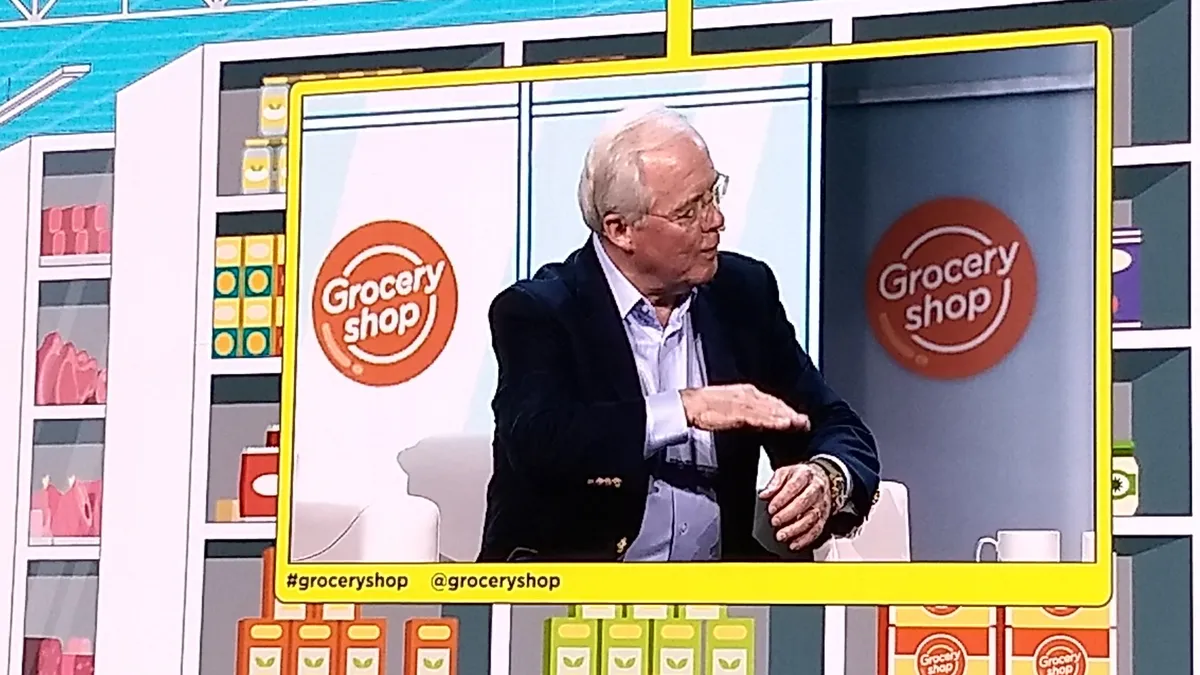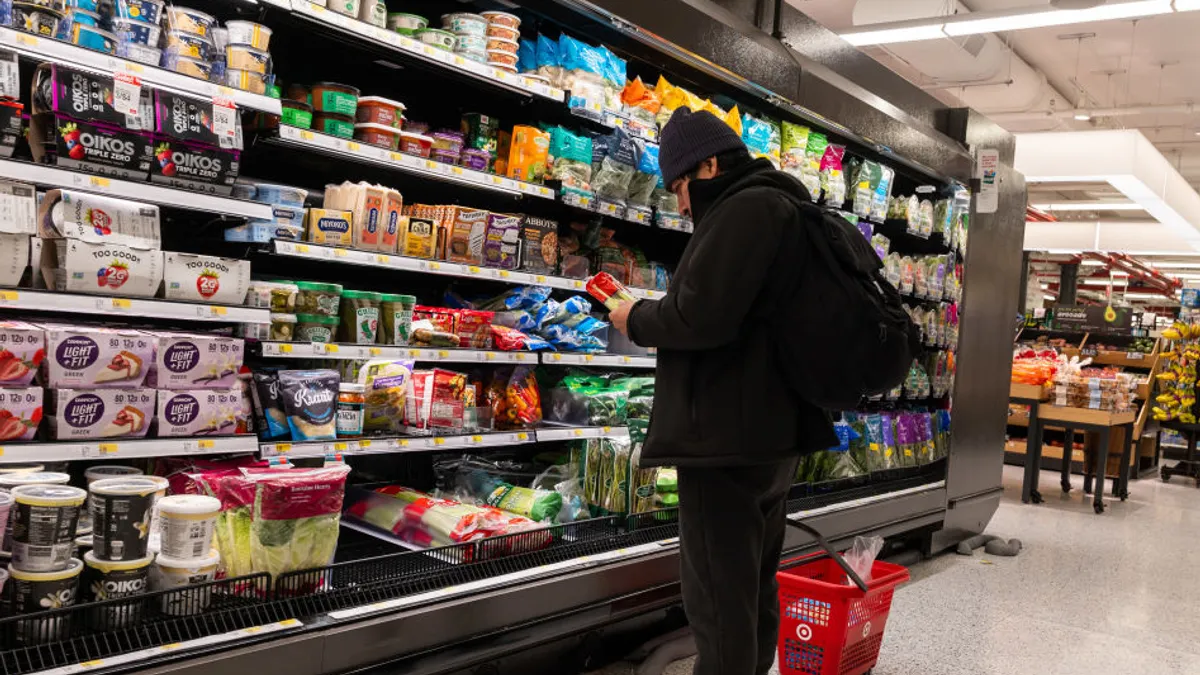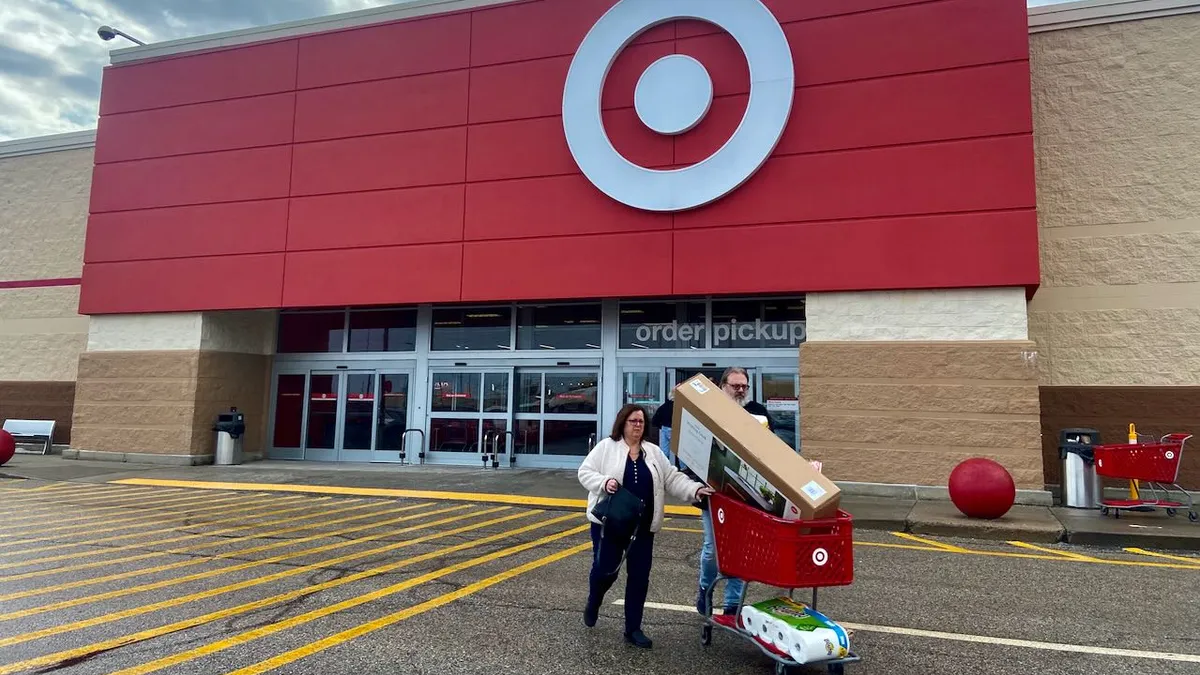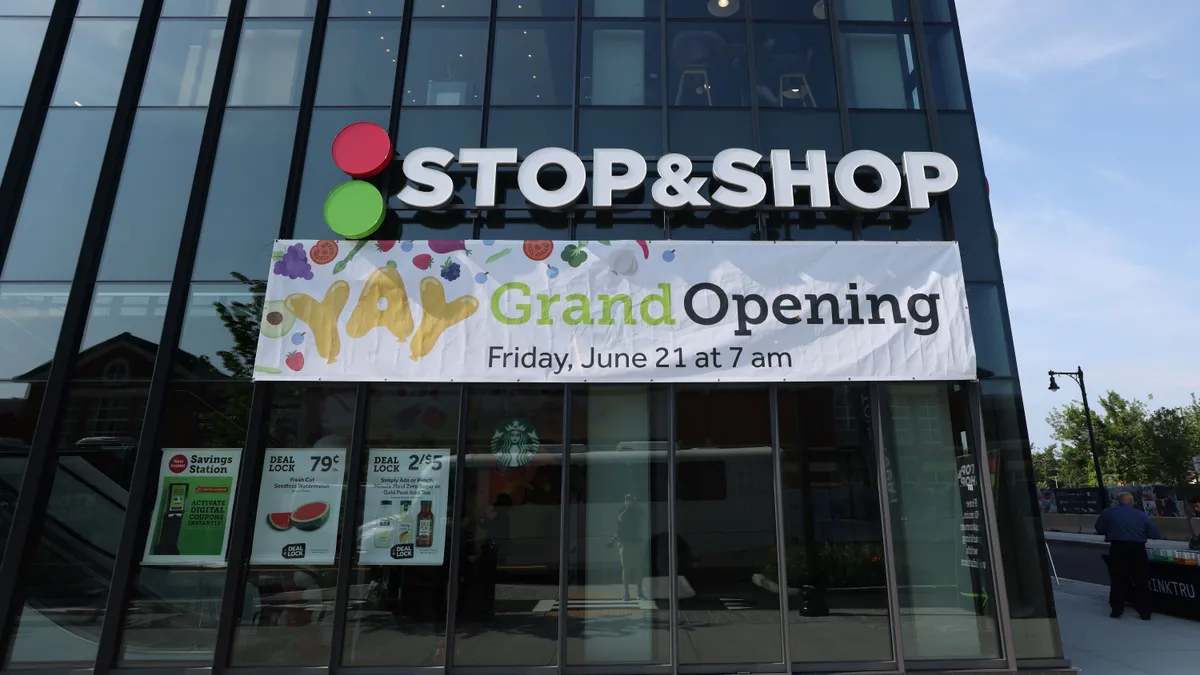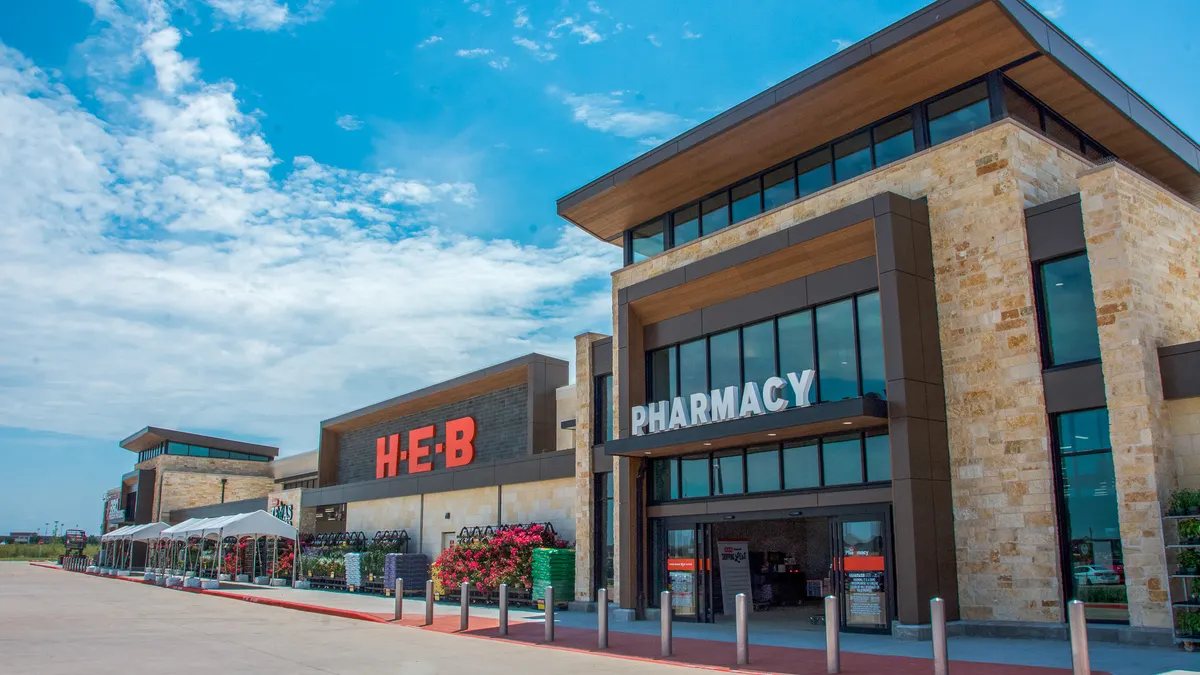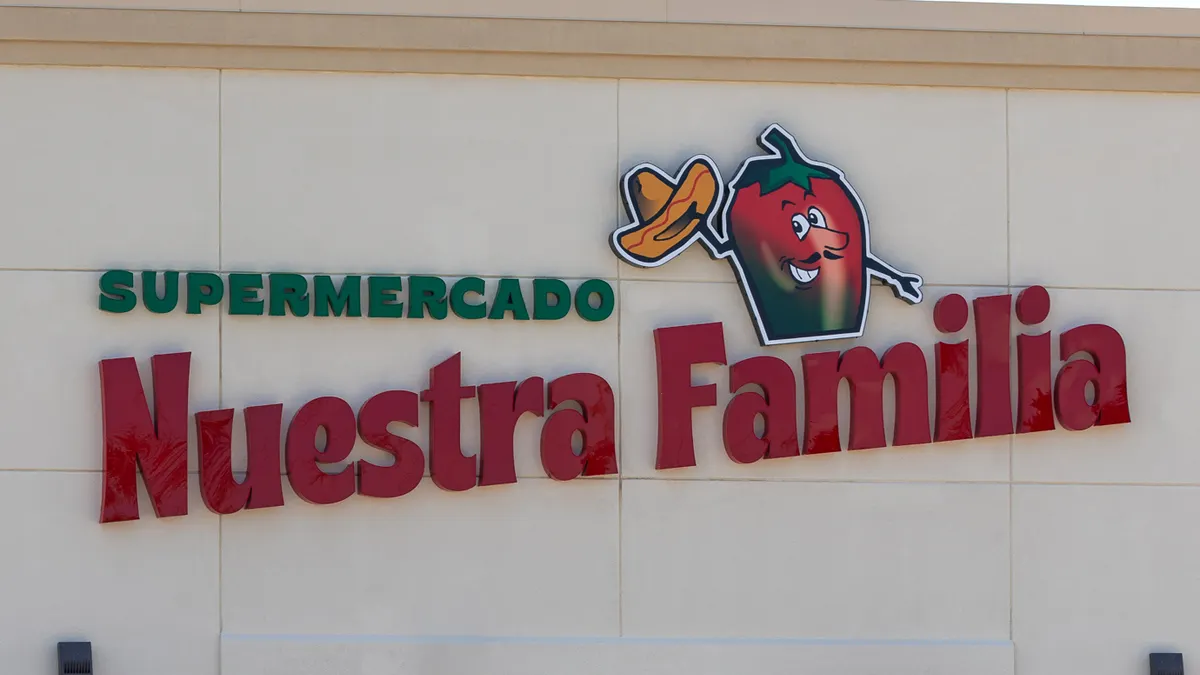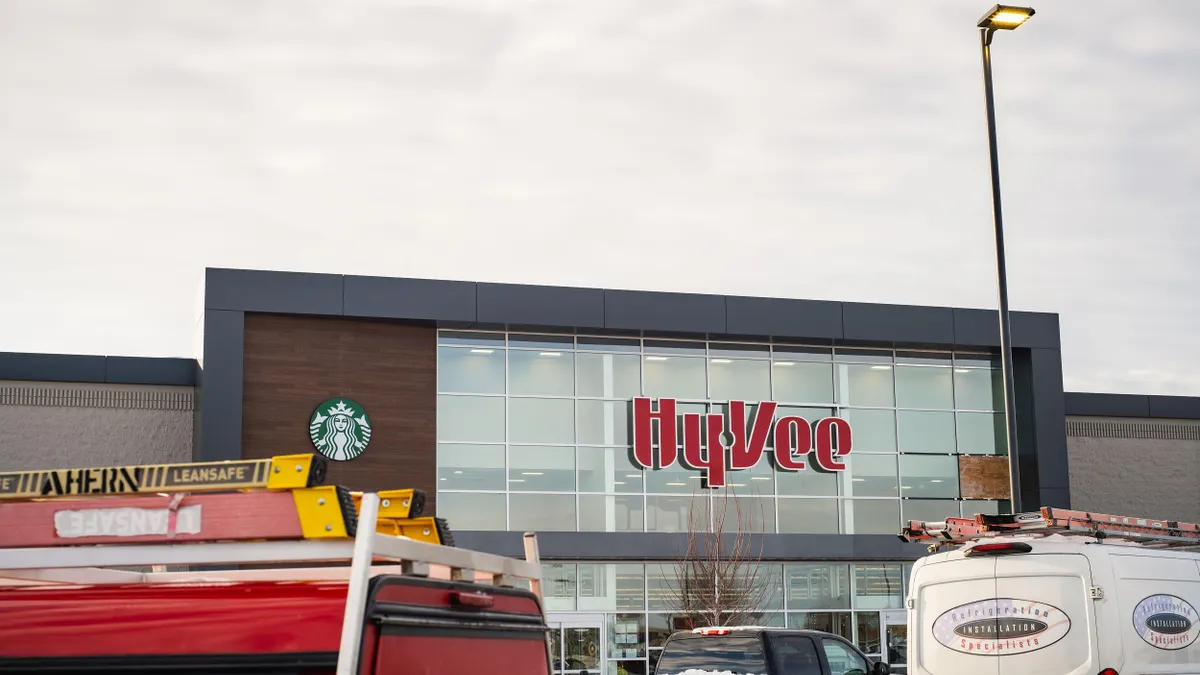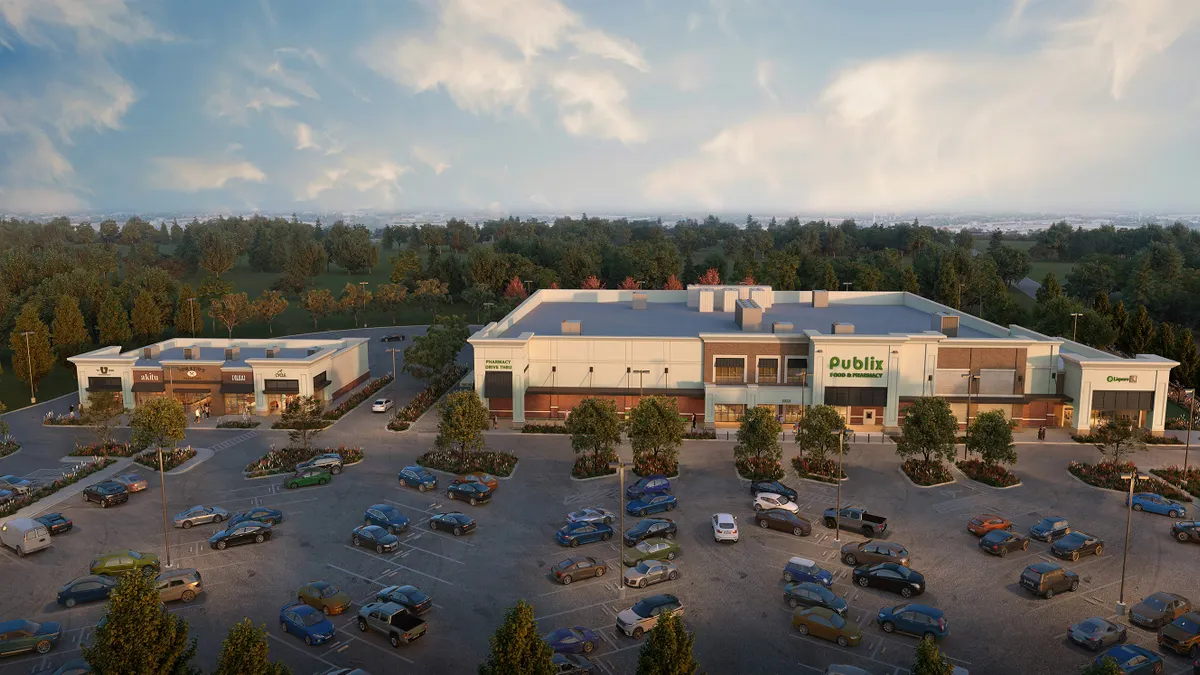Mergers and acquisitions in the grocery space this year have been a mixed bag.
The year kicked off with Ahold Delhaize finalizing its purchase of New York City-based online grocer FreshDirect. As the months progressed, a few regional grocers joined forces. Smaller grocery e-commerce platforms got snapped up by different companies. Gopuff went on an acquisition tear in the U.S. and abroad, and Instacart made not just one but two acquisitions in October — its fourth and fifth since 2018.
M&A had been ramping up prior to the pandemic, with larger grocers growing their regional reach and smaller players seeking financial help. With booming sales recently, analysts speculated that more cross-industry deals would happen in 2021.
As the year comes to the close, here's a look back at the major storylines in grocery industry deals this year.
1. Regionals band together
Regional grocers have found themselves in an increasingly difficult spot as Amazon expands its brick and mortar grocery presence and top players like Albertsons, Kroger and Walmart have beefed up their operations with pandemic sales tailwinds.
To boost their buying power and economies of scale, some regional grocers decided to combine forces this year, the most prominent being Raley's buying Bashas’ Family of Stores to create a West Coast super-regional chain. That acquisition, which was finalized last week, established a new entity called The Raley's Companies to oversee both grocers' operating divisions.
Price Chopper/Market 32 and Tops Markets announced a merger early this year and completed it last month, forming a new company that will continue to operate stores under the two brands' names. Scott Grimmett, Price Chopper/Market 32's president and CEO, is leading the new company.
In November, C&S Wholesale Grocers revealed it had agreed to buy 12 Tops Markets stores and would rebrand them under the Grand Union brand, which dates back more than a century. The Federal Trade Commission required Tops to divest the locations as a condition for its merger with Price Chopper. A few months prior, C&S purchased Wisconsin-based Piggly Wiggly Midwest.
2. Grocery e-commerce firms get snapped up
With digital sales up sharply during the pandemic, several technology players made acquisitions this year aimed at building out their e-commerce services.
In January, technology company NCR announced plans to buy Freshop, with the goal of making Freshop's e-commerce offerings a “key component” of its expanding software and services. A few months later, Dot Foods, the largest food industry redistributor in North America, bought ShopHero. The companies said the acquisition would elevate ShopHero's presence in the online grocery platform space.
In August, fulfillment and delivery company Point Pickup Technologies announced it had snapped up GrocerKey, allowing Point Pickup to offer an end-to-end solution to retailers, more customization of retailers’ e-commerce offerings and increased data insights.
Last month, bulk e-tailer Boxed announced it's acquiring MaxDelivery, an on-demand grocery delivery company serving New York City, to expand into dark-store fulfillment and rapid on-demand delivery of fresh groceries in the Big Apple and beyond. The deal is expected to close this month.
3. Instacart sparks debate with Caper acquisition
Instacart made a splash when it announced its acquisition of catering software company Foodstorm, then followed up just two weeks later by saying it was buying Caper AI, a smart cart and checkout technology company, for $350 million.
The quick-fire acquisitions fueled industry speculation into how the e-commerce provider is positioning itself for future growth.
While Instacart described both acquisitions as furthering its "retailer enablement platform," industry analysts questioned whether Caper's technology, which gives insights into customers' in-store shopping baskets, stands to benefit grocery partners as much as it could help Instacart win CPG advertising spend or potentially become a retailer. (Instacart has said it's focused on supporting its partners and does not plan to become a retailer itself.)
While analysts agreed that the customer data Instacart can get with Caper's technology is the most attractive incentive for the acquisition, they disagreed on what role the smart carts could play, with several noting that smart cart adoption has not widely taken off in the U.S. grocery space. As Instacart gains more shopper insights, it runs the risk of being seen as a threat to grocers, who are also vying for control of customer data, analysts said.
4. Gopuff goes on an acquisition tear
Convenience e-tailer Gopuff announced two funding rounds that in total brought in $2.15 billion to support its rapid growth, and recent reports say the company has scored another $1.5 billion as part of a planned public offering.
As part of its acceleration, the company has gone on an acquisition tear this year in the U.S. and abroad. Gopuff made its first international acquisition by buying U.K. grocery delivery startup Fancy in May, followed by purchasing another British competitor, Dija, over the summer. The two companies, which Gopuff rebranded under its name, allowed the e-tailer to set up operations in the U.K., France and Spain and also expand its technological capabilities.
Stateside, the company announced in June plans to purchase dispatch tech startup rideOS for an undisclosed price. A few days later, Gopuff announced it had acquired another alcohol retailer, Liquor Barn, for an undisclosed amount, adding to its 2020 purchase of BevMo.
5. Delivery gets boozy
Another major e-commerce service also raised a glass to wine, beer and liquor delivery. In February, Uber agreed to buy alcohol delivery startup Drizly for $1.1 billion in stock and cash. Uber said it would integrate Drizly into its Uber Eats app while also keeping a separate Drizly app.
The deals by Uber and Gopuff followed booming alcohol e-commerce sales during the pandemic as people pivoted away from alcohol consumption at restaurants to at-home drinks and alcohol delivery from retailers and convenience stores.
6. International companies and U.S. grocers pair up
While Gopuff was making moves overseas, several international companies strengthened their U.S. grocery presence.
In February, Japanese retailer Pan Pacific International Holdings (PPIH) announced it was buying upscale Southern California grocery chain Gelson’s. PPIH, which started buying local U.S. retailers in 2006, said that it planned to fund more new stores for the chain. It also indicated the grocery company would be a growth vertical for PPIH in the U.S. as it aims for its overseas retail operations to become a “third pillar of earnings” for the company alongside its discount stores and general merchandise outlets.
In May, Bodega Latina Corp., a U.S.-based subsidiary of Grupo Comercial Chedraui, one of Mexico's largest retailers, said it agreed to buy Smart & Final from private equity owner Apollo Global Management. The deal for approximately $620 million plus debt more than tripled Bodega Latina’s U.S. store count and included promises to expand Smart & Final’s footprint.
Last month, Canada-based Vejii, a North American online vegan marketplace, closed its acquisition of Vegan Essentials, another online vegan marketplace, which was founded in 1997 and is headquartered in Wisconsin. Veji said the purchase provides it with access to a second "strategically located" U.S. warehouse, along with more than 20 years of consumer data. Combined, the companies have more than 130,000 subscribers across North America and Europe.
7. Notable M&A outside the U.S.
Several major moves happened abroad in the grocery and meals space that could influence stateside grocers.
This summer, German meal kit company HelloFresh announced plans to buy Australian meal services provider Youfoodz for $125 million. At the time the deal was announced, HelloFresh was also ramping up its U.S. presence with the stateside launch of HelloFresh Market, an online store featuring add-on meals and grocery items, and had recently announced a record year with U.S. customers up 46% in its Q4 over last year.
Another German company also made a notable acquisition: Last month, Schwarz Group, owner of the Lidl and Kaufland supermarket chains, said it bought Israeli cybersecurity firm XM Cyber, which specializes in simulating potential attacks on online infrastructure. The German retailer said it would run XM Cyber as an independent unit. Hackers that compromise customer data and other cybersecurity issues can have a huge impact on grocers' operations, reputations and bottom lines.








